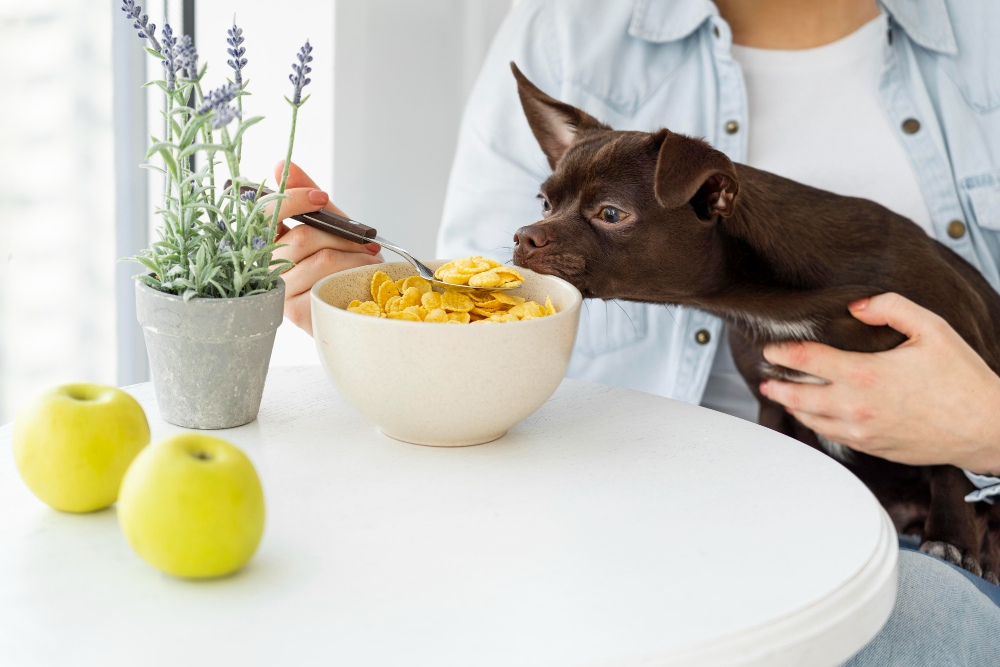We’ve all witnessed it – our beloved furry friends gallivanting through the yard, only to stop abruptly and start munching on grass. As dog owners, this curious behavior can leave us scratching our heads and wondering why on earth our canine companions seem to crave a bit of lawn in their diet. Is it a sign of an upset tummy, a nutritional deficiency, or just plain old quirky canine behavior? Let’s dig into the fascinating world of dogs eating grass and unveil the truth behind this leafy canine cuisine.
The Green-Eating Mystery – Debunking Common Myths
Before we jump into the reasons behind this behavior, let’s clear the field of some common myths. Contrary to popular belief, dogs aren’t grazing on grass because they are sick or trying to induce vomiting. While it’s true that some dogs may eat grass to soothe an upset stomach, most dogs don’t actually vomit after consuming grass. So, if it’s not for their tummy troubles, what exactly drives our four-legged friends to nibble on nature’s salad bar?
An Ancient Instinct – Seeking a Taste of the Wild
To understand why dogs eat grass, we must hark back to their wild ancestors. Wolves, the predecessors of our domesticated pooches, occasionally dined on plant matter along with their meat-based diet. In the wild, consuming plant material like grass served various purposes, such as providing extra fiber, aiding digestion, and even expelling parasites. While our modern-day pups no longer rely on such survival tactics, this instinctual behavior may linger as an echo from their ancestral roots.
The Scavenger – Curiosity and Canine Cuisine
Dogs are natural scavengers, and their curiosity often leads them to explore the world with their noses and mouths. When your dog sniffs around the yard, they may simply be intrigued by the various scents and textures, including the grass beneath their paws. The taste and texture of grass can be an intriguing sensory experience for dogs, making it an occasional nibble-worthy treat, much like how we might sample something new at a buffet.
Boredom Busters – Grass as Entertainment
Believe it or not, our dogs can get bored too. Just like humans, dogs need mental and physical stimulation to stay happy and content. In the absence of other exciting activities, grass-eating can become a form of entertainment for our furry companions. Chomping on grass may provide them with a bit of amusement and break the monotony of a lazy afternoon in the backyard.
The Nutritional Quest – Seeking Missing Elements
While dogs primarily thrive on a balanced diet of protein-rich meat, they might occasionally seek out certain nutrients that their regular meals may lack. Grass contains essential nutrients like fiber, vitamins, and minerals, and some experts believe that dogs may instinctively eat grass to supplement their diet. However, it’s important to note that the amounts of nutrients dogs can extract from grass are minimal, so this behavior is more of a supplement-seeking curiosity than a nutritional necessity.
Is It Safe? – The Grass-Eating Conundrum
The big question that often looms over this grass-eating habit is whether it’s safe for our furry friends. In most cases, occasional nibbling on grass is harmless and doesn’t pose a significant threat to your dog’s health. However, it’s crucial to ensure that the grass they munch on is free from pesticides, chemicals, or other potential hazards. If you’re uncertain about the safety of your lawn, consider offering your dog safe grass alternatives, like wheatgrass or barley grass, which you can grow indoors.
The Concerning Compulsion – When Grass-Eating Becomes Excessive
While sporadic grass-eating is generally nothing to worry about, excessive or compulsive behavior may indicate an underlying issue. If your dog seems obsessed with eating grass or displays other concerning symptoms, such as frequent vomiting, diarrhea, lethargy, or changes in appetite, it’s essential to consult with your veterinarian. These symptoms could be a sign of an underlying health problem that requires medical attention.
A Balanced Diet and a Happy Pup – Tips for Canine Health
To keep your canine companion content and healthy, focus on providing a balanced and nutritious diet that meets their specific needs. Consult with your veterinarian to determine the best diet for your dog’s age, size, and activity level. Additionally, enrich your dog’s life with regular exercise, playtime, and mental stimulation to prevent boredom-driven grass-eating and promote overall well-being.
Grass-Grazing Chronicles – Embracing Canine Quirks
As we wrap up our journey through the world of dog food, let’s remember that dogs, like us, have their own quirks and individual preferences. While we may not fully understand the reasons behind their habit of eating grass, we can accept it as one of the many fascinating facets of their personality. As long as their herbal snacks don’t cause harm or indicate any health issues, let the dog enjoy a green bite from time to time and continue to bring joy into your life with their unique and cute quirks.

Leave a Reply